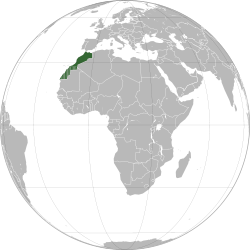By: Said Temsamani

Morocco has set its sights on becoming a model for regional reform different from Egypt, Saudi Arabia, Bahrain, and Libya. This bodes very well for its future prosperity. Tourism has historically been one of Morocco’s most important industries. These reforms will avert the kind of turmoil which has kept visitors away from such countries as Egypt and Tunisia. Moreover, at the same time that it is opening up its political system, Morocco is committed to continuing to invest in its tourism industry.
Morocco
It seems that Middle Eastern based sovereign funds are more keen on investing in hospitality and resort developments compared to their Asian and European peers. This is good news for the Kingdom of Morocco. Tourism is a key source of diversifiable revenue for the North African Kingdom of Morocco. The tourism industry in Morocco employs just below 500,000 people. Cash-strapped Morocco still suffers from high unemployment, a reliance on material exports, and has a young demographic profile.
In December 2010, Gulf sovereign investors parked money into the region. Last year the Qatar Investment Authority (QIA) and Morocco agreed to create a 50-50 joint venture worth US$ 2 billion that targets major development projects in Rabat. Morocco, Qatar, the United Arab Emirates, and Kuwait announced that they will be committing approximately $3 billion from their respective sovereign-wealth funds to create Wessal Capital, a fund that will invest in Moroccan tourism. This will have a dramatic effect in strengthening Morocco’s tourism business and will further reinforce its historic ties with Qatar, UAE, and Kuwait.
Wessal Capital has already announced its initial projects. First is a world-class destination for film makers in Ouarzazate, 300 miles south-east of Rabat, which will include hotels, a museum, golf courses and a center for cinema-related activities. The other initial project will be a world-class ski resort in Oukaimden, near Marrakesh, which will include
hotels, residences, shopping areas, conference centers, theater complex, restaurants, and golf courses.
This will set up a model and an attractive force for other world investors to come to Morocco and invest in various projects. Hopefully, this will open the doors to other countries in the Maghreb region. A unified, economically powerful Maghreb will certainly attract more and more potential investors.
About the author:
Said Temsamani
Said Temsamani is a Moroccan political observer and consultant, who follows events in his country and across North Africa. He is a Senior Fellow, Merdian International Center Washington DC, Founder and CEO “Public Initiatives” Consulting firm and Former Senior Political Advisor, US Embassy Rabat, Morocco.
.






